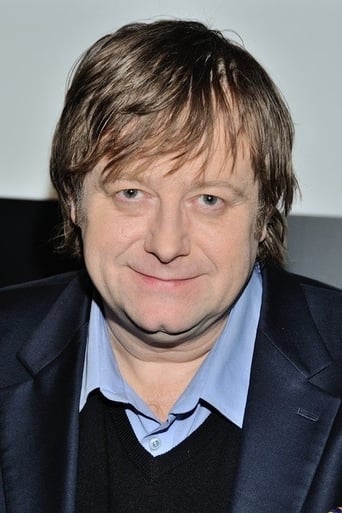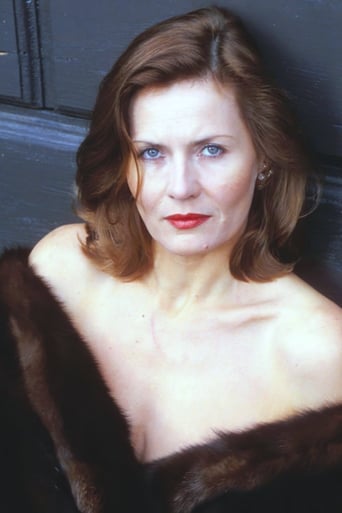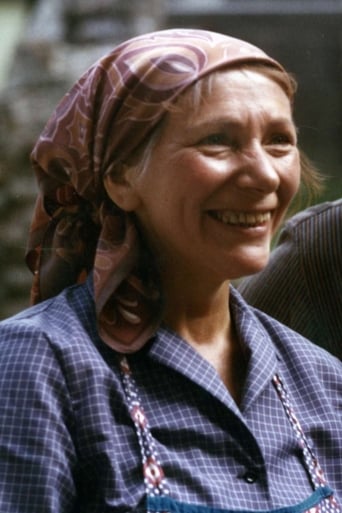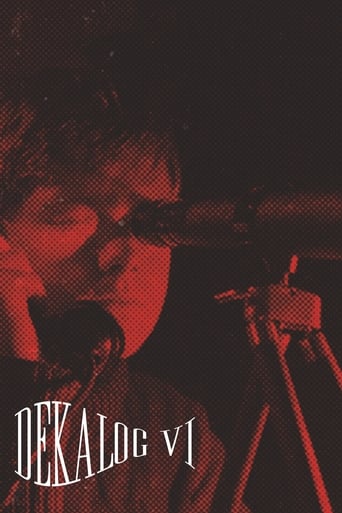
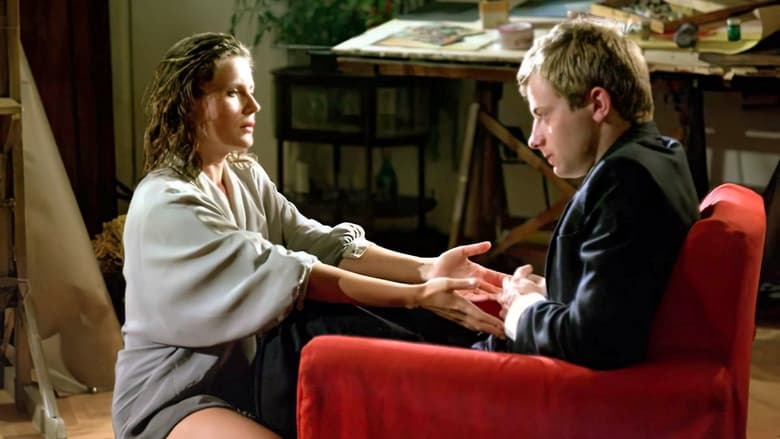
Decalogue VI (1989)
A teenage postal worker, Tomek, routinely spies on his older neighbor Magda, a sexually liberated artist who lives in the apartment across the courtyard from his. As their private worlds merge, fascination turns to obsession, and the line between love and curiosity becomes violently blurred.
Watch Trailer
Cast
Reviews
Touches You
hyped garbage
Crappy film
This is a small, humorous movie in some ways, but it has a huge heart. What a nice experience.
'Dekalog' is a towering achievement and a televisual masterpiece that puts many feature films to shame, also pulling off a concept of great ambition brilliantly. Although a big admirer of Krzysztof Kieślowski (a gifted director taken from us too early), and who has yet to be disappointed by him, to me 'Dekalog' and 'Three Colours: Red' sees him at his best.All of 'Dekalog's' episodes have so many great things, and it is an example of none of the lesser episodes being bad. This is testament to the high quality of 'Dekalog' as an overall whole and how brilliant the best episodes are. Along with Episodes 1, 4 and 5, Episode 6 is one of my favourites and simply magnificent in every way.Every single one of 'Dekalog's' episodes are exceptionally well made. The production values in Episode 6 are as ever atmosphere-enhancing, beautiful and haunting to look at and fascinating. Many of the images are impossible to forget and have the ability to shock and move. The direction is quietly unobtrusive, intelligently paced and never too heavy, and the music is suitably intricate.The themes and ideals are used to full potential, and the characters and their relationships and conflicts feel so real and emotionally resonant without being heavy-handed. Despite being based around one of the ten commandments, don't let that put you off, resemblance to religion is relatively scant.Story-wise, it is one of 'Dekalog's' richest, it's creepy, it's poignant and thoughtful, deliberate but never dull. The themes of obsession, stalking, lust, and heartache are expertly explored. The characterisations and interactions are among 'Dekalog's' richest and compellingly real. The acting is superb as to be expected from both the two leads, again the complexity and nuances of the performances is to be admired.Overall, one of the best 'Dekalog' episodes and a masterpiece. 10/10 Bethany Cox
In most of the films the treatment of love leaves a lot to be desired. This might be because it is always a challenge to effectively portray true feelings of love which might appeal to all kinds of viewers. This is the reason why an occult theme such as love should always be shown by taking into consideration concomitant themes such as desire, lust,sexuality and voyeurism.These sentiments are some of love's near cousins.This can help in making love stand apart from other secondary feelings."Dekalog:Dekalog,Szesc (#1.6)" is an excellent short film which gives us an idea about true love.Polish director Krzysztof Kieslowski shows us how true love comes and makes sense in the life of a person for whom love means nothing.The puzzling thing is that this is a case of an unusual love story involving a young boy and a woman who is older than her.This theme might appear as a bit hackneyed due to the fact that a lot of elements have been copied from American cinema but nevertheless the overall content of the film is original.A great film for all those who believe that love can only be felt and cannot be shown.
This story is based on the EYE'S FICTITIOUS POWER, meant as a subtle and perverse kind of interference with our personal lives in the name of aims in clear contrast with every rules for civil living. Intended as a strict and precarious consequence of the obvious impossibility of coming to terms with one's own frustrated ambition, subjected to under-valuate the human interrelations dynamics. Acting as a comforting heaven-sent shelter from the dangers of the main character's hermetically sealed world, as an ambiguous way to take up a defensive position and give vent to the increased capability of the faculty of sight artfully increased at other people's expenses, whose privacy is being violated in their own homes.The Dekalog 6, "Thou shalt not commit adultery", a shorter version of "A Short Film About Love", rotates around the barycenter of Tomek's room, a world apart from where he looks around epistemologically in search of some contiguous reality analyzed under his anomalous point of view, purified of all normal human contacts, always focused on Magda, his "bright" object of desire, incapable of facing her with open heart for fear of tasting the bitter flavor of frustration. Conscious of his aleatory capacity of interacting with reality by phone, Tomek may be considered a living symbol of the human inability to perform the least act of love. His disturbing condition of abusive collector of undue slices of reality is doomed to reveal all its limits owing to wrong synergism between his will power immersed in totalizing choices and the frailty of his immature mind deprived of any sense of security given up for lost. So his "bright" object of desire assumes the same solidity of an image reflected in the glass, completely devoid of all real consistence, even if endowed with a paralyzing erotic charge able to melt virtual juvenile ardors like snow in the sun.Kieslowski shows here an unusual tendency toward reddish tones of the same color of that insane passion which drives Tomek to the perpetration of sexual impure acts forbidden by the sixth commandment, together with Magda, charming thirty-year-old woman affected by exhibitionist mania and late repentance for her sins, opaque and unlikely reminiscence of the evangelic Mary Magdalene. The red color assumes the natural function of dramatic passion, dominating the scene completely such as in the final chapter of the colors trilogy. But while in "Trois couleurs: Rouge" its presence is mixed with a sense of detachment and with skeptical attitude towards every passionate involvements, in "Dekalog 6" one can perceive from afar the heat of the blazing flame ready to burn out suddenly as soon as the real nature of love, fleeting and deceptive, can be unmasked.
the best of the series that i've seen so far. i guess you could call this one a sort of cinema verite style. the meat of this film is in the story and the characters. so much of the story is told without dialogue and that's sexy. the acting is very good as i've quickly come to expect from kieslowski's crew and the story was just plain good. the changing of roles midway through provided and interesting situation while avoiding a contrived feeling. B+.
